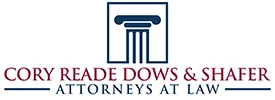- posted: Jun. 19, 2020
The Nevada Supreme Court has recently addressed the ability of a Judgment Creditor to execute on the claims of a Judgment Debtor and dismiss an appeal; however the decision restricts those rights.
Nevada's general policy is that execution statutes must be liberally construed for the benefit of creditors, including the ability to execute on "rights of action” held by a Judgment Debtor but not a party's defenses to an action. The Nevada Supreme Court divided claims that can be executed upon into two categories: (a) those that can be assigned and (b) those that cannot be assigned, and held that "Things in action" only includes those claims that the judgment debtor has the power to assign. A judgment debtor's property is not subject to execution "unless the debtor has power to pass title to such property or interest in property by his . . . own act."
Nevada generally prohibits the assignment of tort claims on public policy grounds, as many tort claims are personal in nature and meant to recompense the injured party. Fraud and intentional misrepresentation claims are personal in nature and unassignable. Personal injury claims likewise are unassignable because such claims would strip people of their right to pursue their personal injury claims and instead turn personal injury claims into commodities for sale.
However tort claims for injury to property rights were held to be assignable and thus subject to execution. More specifically negligent misrepresentation claims in Nevada only arise out of pecuniary loss, not personal injury. Claims alleging damages to property, rather than personal damages, are generally assignable. rights of action in tort involving damage to property are generally assignable because they do not include non-economic losses such as physical pain and mental anguish, and thus are more akin to the assignment of proceeds from a personal injury tort than to the assignment of the claim itself. Therefore the Nevada Supreme allowed the assignment of tort claims affecting property while prohibiting the assignment of personal injury tort claims.
Likewise contract-based claims were held to be assignable and subject to execution unless the obligations are personal in nature. So long as the contract is not a personal service obligation or the assignment would increase the party’s obligations, contract claims are assignable and subject to execution.
Let us know if we can be of assistance to you in your collection matters.


